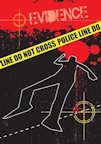 In the face of more than 100,000 serious injuries and deaths every year, it’s pretty difficult to accept the idea that gun violence isn’t a public health issue, yet promoters and defenders of gun ownership continue to insist otherwise. And while it would be easy to assume that such warped thinking is the product of infantile and/or uninformed minds, medical and public health communities have been spectacularly unsuccessful trying to convince Americans that guns constitute a risk to health. In fact, both Gallup and Pew polls indicate that a majority think that guns protect us from crime, even while the same majority also support expanded background checks.
In the face of more than 100,000 serious injuries and deaths every year, it’s pretty difficult to accept the idea that gun violence isn’t a public health issue, yet promoters and defenders of gun ownership continue to insist otherwise. And while it would be easy to assume that such warped thinking is the product of infantile and/or uninformed minds, medical and public health communities have been spectacularly unsuccessful trying to convince Americans that guns constitute a risk to health. In fact, both Gallup and Pew polls indicate that a majority think that guns protect us from crime, even while the same majority also support expanded background checks.
In light of the divergence between public health research findings on the one hand, and public opinion in the other, I am beginning to think that perhaps the problem lies not in the power and messaging of Gun Nation, but reflects the possibility that perhaps public health research should stop focusing so much energy on the public aspects of gun violence and spend more time thinking about the health aspects of the problem, in particular, the issue of why people own and use guns.
Because there would be no gun violence if a certain number of people each year didn’t misbehave with their guns. And the issue of behavior is never far removed from the manner in which the medical profession deals with disease. The mortality numbers for serious illnesses would be much different if we changed behaviors like smoking, excess eating and drinking which cause heart disease and cancer which leads to medical distress.
The medical response to behavior which leads to gun morbidity, however, seems to largely put the cart before the horse. Doctors are being advised to counsel patients on safe gun storage, as if gun violence will be ‘cured’ by locking the guns up or locking them away. I’m not against safe storage, but less than 4% of gun injuries occur because a child grabbed an unlocked, loaded gun. The overwhelming amount of gun violence, for which the medical costs alone are estimated to be at least $50 billion each year, takes place because someone made the conscious decision to use their gun to injure either themselves or someone else. And that decision is rarely going to bear on whether the gun is locked away.
Last year a public health research team conducted a survey of 4,000 adults of whom one-third reported owning guns. Half of the gun-owning group also reported that they engaged in social activities involving guns with either family members or friends. Which meant that for these folks the ownership of guns goes far beyond believing that guns make them safe.
To people for whom gun ownership is how they create their social milieu, guns represent honesty, patriotism, family and other cultural artifacts which form a basis for self-expression and communication between family members and friends. So when such folks perceive a threat to their ownership of guns, this perception quickly becomes a threat to their self-identity as well. Which means that trying to prove that guns are a risk will only push such individuals to harden their resistance against losing their guns.
“If individuals adopt one position or another because of what guns mean instead of what guns do, then empirical data are unlikely to have much effect on the gun debate.” To me, this statement by Don Braman and Dan Kahan neatly sums up much of what has characterized the gun debate over the last several decades.
Please don’t misunderstand – I’m not opposed to empirical research. But it’s one thing to argue the case for gun risk by citing data which shows that gun injuries increase in homes where there are more guns; it’s another thing to convince individual gun owners that such a finding might apply to any of them. Want to counsel a patient about whether his guns represent medical risk? You’ll have to figure out how to do it using language which isn’t perceived as a threat.
Mar 21, 2024 @ 13:44:38
Amen Mike!
Mar 21, 2024 @ 14:57:23
Hit the nail on the head! Many gun owners feel that it is their constitutional right to own a gun, whether they are not responsible enough or they are capable to own a gun, which is not a question that they consider valid. Human behavior is very complicated and difficult to change. Look at the governments add campaigns that have failed miserably like “Just say no to drugs”. I don’t have any answers on how to change human behavior. We lost another of my heroes, keyboardist Keith Emerson, after he shot himself because he was depressed about loosing his skills as a performer due to medical problems. Would he still be alive today if he did not have access to a gun? We will never know, but he might have failed with other ways to kill himself and gotten psychological treatment to deal with his depression.
Mar 21, 2024 @ 15:05:50
I just ran across this study. Have you seen this Mike? https://www.sciencedaily.com/releases/2016/03/160320215931.htm
Mar 21, 2024 @ 20:05:01
Thanks for the great link Peter! It’s further got a side bar chalk full of other good data.